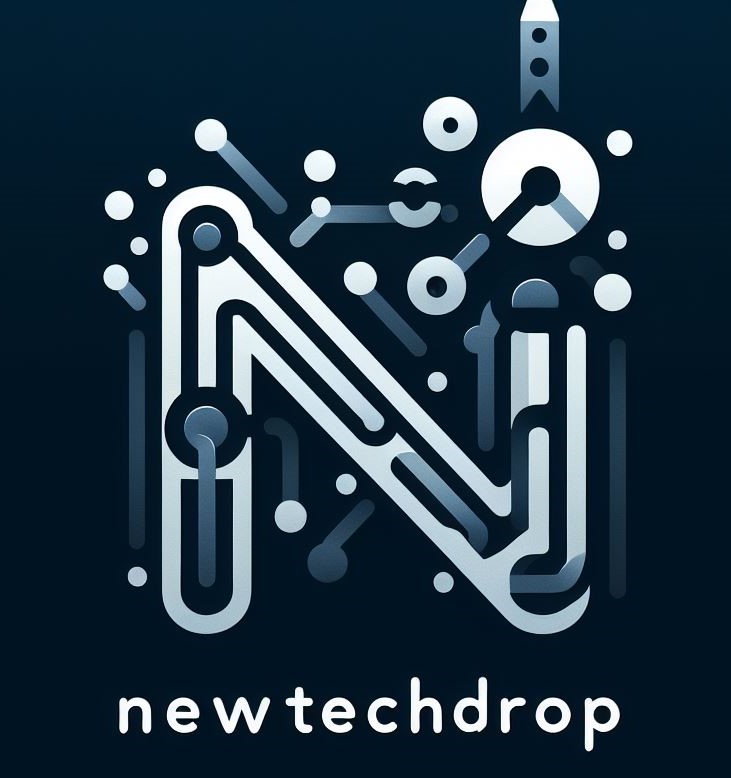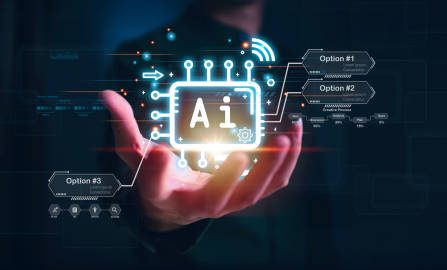Artificial Intelligence (AI) is no longer a futuristic concept or a dream, but a reality that is transforming our world and changing the old traditional ways we do things. Having a check from virtual assistants like Siri and Alexa to self-driving cars and personalized product recommendations, AI is taking over everywhere. But the question is, what exactly is AI, and how is it affecting our lives?
In simple terms, AI is to the ability of machines to reason and learn like humans. It’s an aspect of computer science that aims to create intelligent machines that can perform tasks that typically require human intelligence, which include but not limited to understanding language, recognizing images, and making decisions.
The History of Artificial Intelligence (AI).
The concept of AI dates back to the 1950s, when computer scientists like Alan Turing and Marvin Minsky started exploring ways to create machines that could think. However, it wasn’t until the 21st century that Artificial Intelligence started gaining mainstream attention.
In 2011, IBM’s Watson computer system defeated human champions on the game show Jeopardy! demonstrating the power of AI in processing vast amounts of data and answering complex questions. Since then, AI has been rapidly advancing, with breakthroughs in areas like deep learning, natural language processing, and computer vision.
How AI is Affecting and Transforming Industries.

AI is revolutionizing industries across the board, from healthcare and finance to education and entertainment. Here are a few examples:
1. Healthcare: Revolutionizing Patient Care.
AI is transforming the healthcare industry in profound ways, from diagnosis to treatment and patient care. Here are some examples of AI’s application in the healthcare:
Diagnostic Accuracy: AI-powered diagnostic tools can analyze vast amounts of medical data, including medical images, lab results, and patient histories, to detect diseases like cancer and diabetes more accurately and earlier than human doctors. For example, AI-powered computer vision can detect breast cancer from mammography images with a higher degree of accuracy, reducing false positives and false negatives.
Personalized Medicine: AI can help personalize treatment plans based on individual patient characteristics, such as genetic profiles, medical histories, and lifestyle factors. This personalized approach can lead to more effective treatment outcomes and reduced side effects.
Robotic-Assisted Surgery: AI-assisted robots are helping surgeons with complex procedures, enhancing precision and reducing recovery times. For example, robotic systems like the da Vinci Surgical System can assist with minimally invasive surgeries, allowing for smaller incisions and less tissue damage.
Patient Care: AI-powered chatbots and virtual assistants can help patients with routine queries, freeing up human healthcare professionals to focus on more complex cases. AI can also help with patient monitoring, tracking vital signs and alerting healthcare professionals to potential complications.
Drug Discovery: AI can accelerate drug discovery by analyzing vast amounts of data on potential drug candidates, predicting their efficacy and toxicity. This can reduce the time and cost associated with traditional drug development methods.
Predictive Analytics: AI-powered predictive analytics can help identify high-risk patients, anticipate disease progression, and suggest preventive measures. For instance, AI can analyze electronic health records (EHRs) to identify patients at risk of developing chronic diseases like diabetes or heart disease.
Mental Health: AI-powered tools can help address mental health issues like anxiety and depression, providing personalized therapy and support. Chatbots and virtual assistants can offer 24/7 support, helping patients manage their mental wellbeing.
As the technology continues to evolve, we can expect even more innovative applications of AI revolutionizing the healthcare in the future.
Read more on AI: Human brain chip achievements.
2.Finance: Enhancing Trading and Security.
AI is revolutionizing finance, enhancing trading and security. AI-driven trading systems analyze market trends, make predictions, and execute trades with precision, reducing the risk of human error. AI-powered fraud detection systems identify and prevent financial crimes, such as money laundering and credit card fraud. AI also helps with credit risk assessment, portfolio management, and compliance. Additionally, AI-powered chatbots and virtual assistants provide customers with personalized financial advice and support. By automating routine tasks, AI frees up financial professionals to focus on high-value tasks, leading to increased efficiency and accuracy.
3. Education: Transforming Learning and Support.
AI is transforming education, making it more personalized and effective. AI-powered adaptive learning systems adjust to individual students’ needs, abilities, and learning styles, improving learning outcomes and increasing engagement. AI-powered chatbots and virtual assistants provide students with instant support and answers to their queries, freeing up teachers to focus on more complex and creative tasks. AI also helps with grading, feedback, and identifying learning gaps, enabling teachers to tailor their instruction and support. Additionally, AI-powered tools help students with special needs, such as autism and dyslexia, providing personalized support and accommodations. By harnessing AI, education becomes more inclusive, effective, and student-centered.
4. Entertainment: Transforming Content Creation and Discovery.
AI is transforming the entertainment industry, revolutionizing content creation and discovery. AI-generated content, such as music and videos, is becoming increasingly popular, offering new and innovative forms of artistic expression. AI-powered algorithms can compose music, write scripts, and even create special effects, expanding the possibilities for creators. Obviously not forgetting AI Photo editors too.
Meanwhile, AI-powered recommendation systems help users discover new music, movies, and TV shows, personalizing their entertainment experience. AI-driven analytics also enable content providers to better understand audience preferences, informing production and distribution decisions. Furthermore, AI-powered chatbots and virtual assistants enhance the user experience, providing personalized support and recommendations. As AI continues to advance, we can expect even more exciting innovations in entertainment, redefining the way we create, consume, and interact with content.
The Benefits of Artificial Intelligence.
Read how to unluck the creative power of generative AI.
So, what are the benefits of AI? Let’s have a few of them.
i. Increased Efficiency: AI can automate repetitive, mundane, and time-consuming tasks, freeing up humans to focus on more creative, strategic, and high-value work. By taking over tasks like data entry, bookkeeping, and customer service, AI enables professionals to concentrate on complex problem-solving, innovation, and decision-making.
ii. Improved Accuracy: AI can process vast amounts of data with precision and speed, making predictions and decisions with a high degree of accuracy. AI-powered algorithms can analyze patterns, identify trends, and detect anomalies, reducing the likelihood of human error and bias.
iii. Enhanced Customer Experience: AI-powered chatbots and virtual assistants can provide 24/7 customer support, answering queries, resolving issues, and offering personalized recommendations. AI-driven sentiment analysis and social media monitoring enable businesses to respond promptly to customer feedback and concerns.
iv. Innovation: AI is enabling new products and services that were previously unimaginable. AI-powered technologies like natural language processing, computer vision, and machine learning are driving innovation in areas like healthcare, finance, transportation, software development and education, unlocking new possibilities and transforming industries.
These benefits highlight how AI can augment human capabilities, enhance productivity, and drive innovation, leading to significant improvements in various aspects of business and life.
The Challenges of Artificial Intelligence.
While AI offers many benefits, it also raises important questions about ethics, privacy, and job displacement. Some challenges we need to address include:
a) Job Displacement: AI could displace certain jobs, particularly those that involve repetitive tasks.
b) Bias: AI systems can perpetuate existing biases if they’re trained on biased data.
c) Privacy: AI systems often require vast amounts of personal data, which raises concerns about privacy and security.
d) Ethics: AI systems can make decisions that have ethical implications, such as autonomous vehicles deciding who to prioritize in an accident.
AI is a powerful technology that has the potential to make better transformations to our world. While it raises important challenges, the benefits of AI are undeniable. As we move forward, it’s essential to address the ethical and social implications of AI and ensure that its benefits are shared equitably. Whether you’re a beginner or an expert, AI is an exciting field that’s worth exploring. It will be super good if you do leverage on the power of this tool to expand whatever you do.
The Future of Artificial Intelligence.
what does the future of AI look like? These are few trends to watch out for:
I) Edge AI: With the proliferation of IoT devices, Edge AI is becoming increasingly important, enabling real-time processing and analysis of data at the edge of the network. Edge AI refers to the ability of devices to process data autonomously, without relying on cloud infrastructure, reducing latency and improving responsiveness in mission-critical applications.
II) Explainable AI: As AI becomes more pervasive and influential in our lives, it’s essential to understand how AI systems make decisions, ensuring trust and reliability. Explainable AI is a growing field that aims to make AI more transparent, accountable, and interpretable, enabling us to comprehend the reasoning and logic behind AI-driven outcomes and decisions.
III) Human-AI Collaboration: AI is not meant to replace humans, but to augment our capabilities, enhancing our creativity, productivity, and decision-making. Human-AI collaboration is becoming increasingly important, as we explore ways to work together with AI systems, leveraging the strengths of both humans and machines to achieve better outcomes and drive innovation.
Let’s have your view on the future of this wonderful tool on the comment section.





Leave a Reply